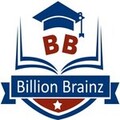With the employment market unclear, now is an excellent time to think about the skills required in 2022 to get a job for beginners.
According to the World Economic Forum’s Future of Jobs Report, 42 percent of essential workplace skills will change in two years.
Workplaces are in a perpetual state of change. The talents required to succeed in today’s workforce are vastly different from those needed in the past.
Future vocations, by the same rationale, will necessitate whole different abilities. As existing functions become outdated, new jobs will emerge, some of which we don’t yet have names for.
Learn about the abilities that employers of the future will most likely be seeking, as well as the online courses you may take to improve your skills.
The following decade is expected to be a period of rapid change. According to the World Economic Forum, 43 percent of the essential skills needed to execute current occupations may change in the coming years. Change is happening so quickly.
The Fourth Industrial Revolution, often known as Industry 4.0, is defined by connectedness, with data and information is shared across platforms and media. Boundaries between the physical, digital, and even biological domains will be blurred.
These transformations will be driven by automation and machine learning. These are likely to result in the most substantial changes in terms of workforce skills. Old jobs will be automated, and new jobs will be created to work with these automated technologies.
While this can significantly improve our lives, people who lack the necessary skills are at risk of being left behind. The coronavirus pandemic will almost probably increase the impacts of this.
While politicians will be in charge of many of the positive and harmful consequences, those seeking to better their future employability should identify and learn the most desirable skills in future employment.
Skills gaps are anticipated to emerge, resulting in high demand for trained individuals.
Here is a list of what we believe some (but by no means all!) of these future abilities will be. The general agreement appears to be that prospective employers will demand a combination of hard and soft skills.
In 2022, the top skills will be:
- Innovative thinking and analytic thinking
- Originality, creativity, and initiative
- Designing and programming of technology
- Analysis and critical thinking
- Problem-solving
- Social impact and leadership
- Emotional intelligence
- Problem-solving and reasoning
- Analysis and evaluation of systems
1. Data Science:
According to the World Economic Forum, data and artificial intelligence will be one of the most critical future growth drivers.
This is the big data age where the information is in huge quantities, which has almost become a cliché. Yet, that doesn’t make it any less evident.
Information is being gathered on an extraordinary scale, and it’s being used for everything from improving current cycles to keeping racks stacked to strictly focusing on advanced advertisements.
Huge information’s extension and reach will grow before very long, permitting AI and mechanization. Information is the language that will empower the availability that will be at the center of Industry 4.0.
2. Artificial Intelligence(AI):
One of the essential drivers of the Fourth Industrial Revolution is quick improvements in AI and ML.
These will transform the way we work by automating tedious processes faster and more precisely than any human could, identifying trends to forecast what will happen in the future, and providing highly personalized user experiences.
3. The Blockchain Technology:
Blockchain ranked first on LinkedIn’s ranking of the most in-demand hard talents for the previous year. At the same time, the vast majority contemplate blockchain when they consider Bitcoin. The innovation’s potential financial uses are a lot more extensive.
A decentralized public record is characterized as a blockchain.
It gives a protected and undeniable record of exchanges and exchanges while blocking the requirement for set up specialists, like banks, on account of Bitcoin.
The economic effect of blockchain is relied upon to be enormous. By 2027, the World Economic Forum expects that 10% of global GDP will be kept on the blockchain.
4. Sales and Marketing:
Sales and marketing may not appear to be very futuristic professions, yet they are not automatable. These callings, for now, require a human touch to acquire a benefit in the new computerized era.
These positions presently hold the most significant market and will continue to do so in 2022, with growth expected over the coming years. Sales are also included as one of the top ten job skills for 2020 on LinkedIn.
Technology has revolutionized marketing by introducing new channels such as social media and affiliate marketing. Marketers will be needed to decide and drive campaigns, paying little mind to how best in class the tools get.
5. Medical and nursing care:
The world’s population is growing older. In 2015, 12.3% of the world’s population was over 60 years old. This is relied upon to move to 16.4 percent by 2030 and afterward to 21.3 percent by 2050.
This tendency will be generally evident in Europe, North America, and East Asia, where lower rates of birth and more extended futures will adjust society’s cosmetics.
As a result, there will be a more significant demand for healthcare and nursing abilities in the future job market.
6. Creativity:
Creativity is frequently referred to as an essential quality for what’s to come. It’s vital to emphasize that this isn’t limited to “creative” occupations but applies to all businesses and activities.
Indeed, in recent years, the trait of creativity has become increasingly important in many types of vocations. Indeed, it is suggested that imagination is more vital than the often-emphasized STEM abilities for a wide range of occupations.
According to this survey, creativity is seen as an essential quality in management and leadership, as well as, curiously, science and engineering.
